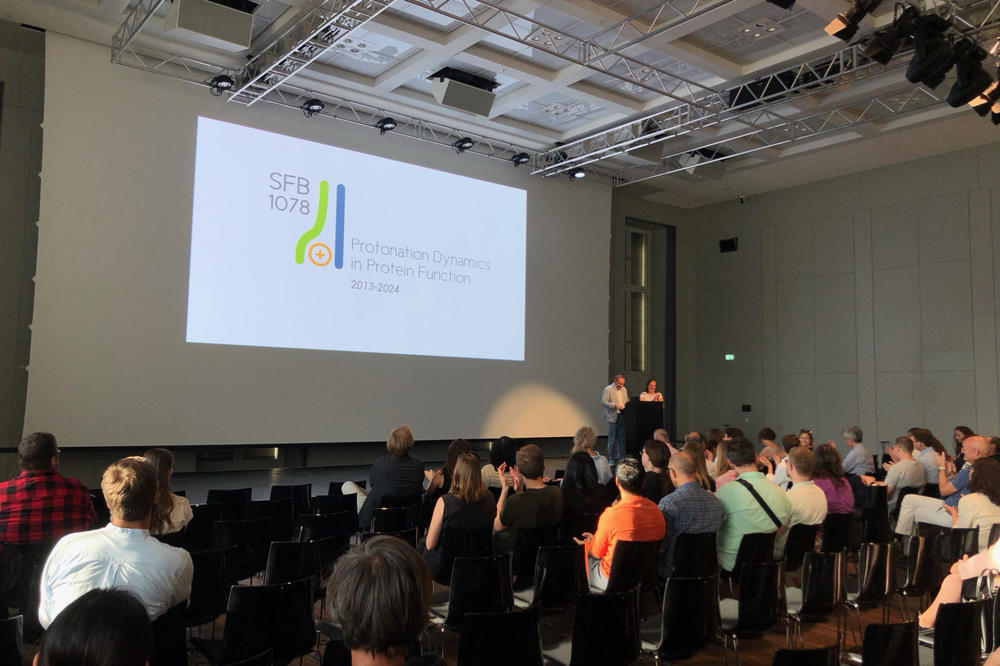Conclusion of the Collaborative Research Center 1078 "Protonation Dynamics in Protein Function"
12 Years of Biophysical Research on Protons in Membrane Proteins – What Have We Learned?
The Collaborative Research Center "SFB 1078: Protonation Dynamics in Protein Function" concluded in December 2024 after twelve years of intensive research. The results of this work were presented and celebrated at a symposium in September 2024.
News from Dec 30, 2024
Established in 2013 within the Department of Physics at Freie Universität Berlin, CRC 1078 was funded by the German Research Foundation (DFG) across three funding periods until the end of 2024. Under the leadership of Freie Universität Berlin, the CRC involved overall 24 research projects executed by 29 research teams with expertise spanning physics, chemistry, biology, and computational sciences.
In addition to eleven research groups from Freie Universität Berlin, collaborators included teams from: Technische Universität Berlin, Humboldt-Universität zu Berlin, Technische Universität Dresden, Charité - Universitätsmedizin Berlin, Leibniz Institute for Molecular Pharmacology, Justus Liebig University Giessen, and the Hebrew University of Jerusalem in Israel.
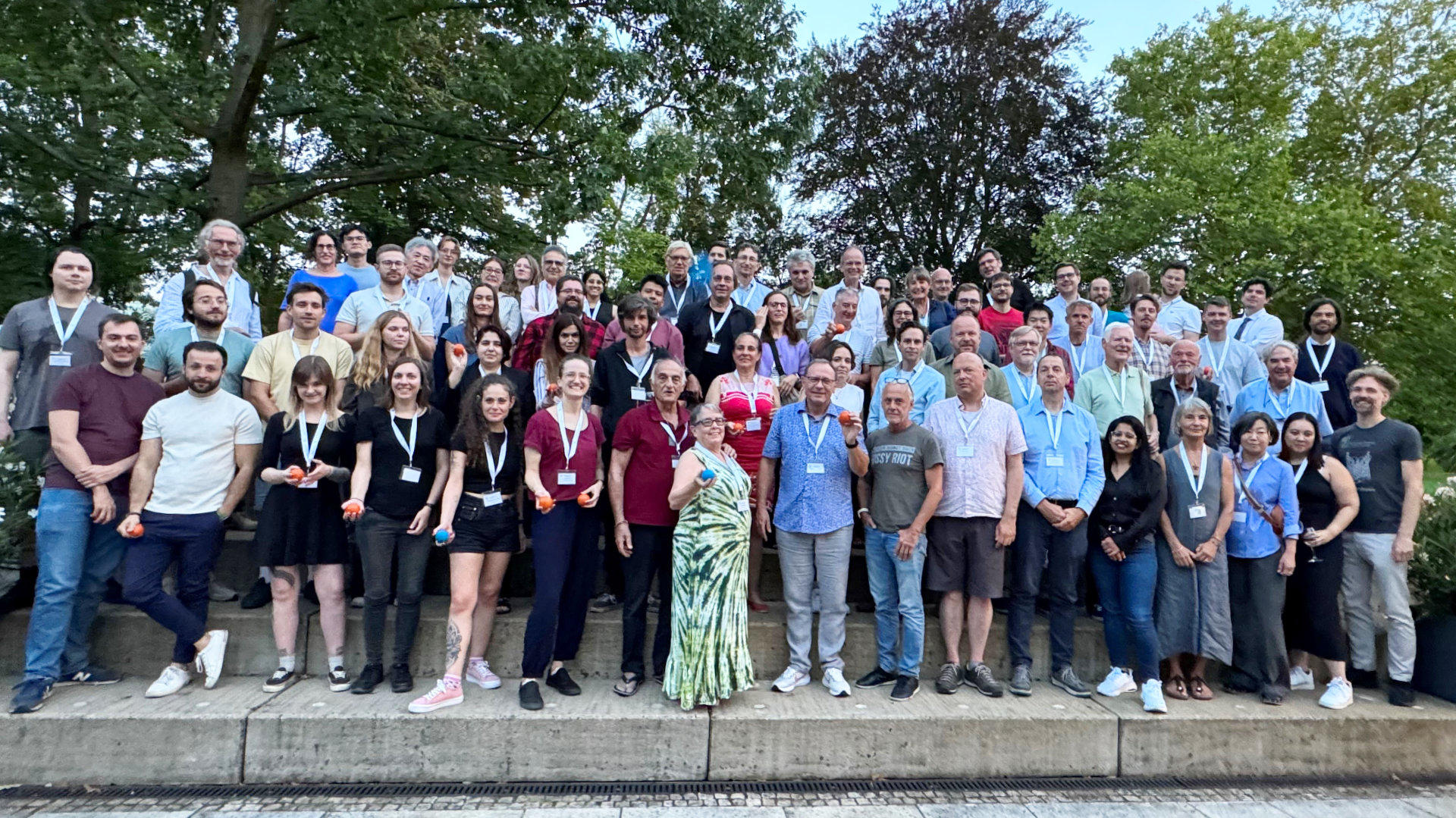
At Freie Universität Berlin, the following research groups participated in SFB 1078: Joachim Heberle, Holger Dau, Ulrike Alexiev, Cecilia Clementi, Karsten Heyne, Jacek Kozuch, Roland Netz, Ramona Schlesinger, Stephan Block, Petra Imhof, and Ana-Nicoleta Bondar.
Protonation Dynamics: A Key Principle in Complex Protein Functions
CRC 1078 focused on protonation dynamics—the controlled and coordinated movement of hydrogen ions (protons) in membrane-bound proteins. These dynamics, evolutionarily optimized, are pivotal in biochemical processes such as enzyme functions and cellular signal transduction.
“The uniqueness of this CRC lies in connecting seemingly unrelated topics—photosynthesis and respiration on the one hand, and optogenetics, viral infection, and light perception in bacteria and plants on the other,” said Prof. Dr. Joachim Heberle, long-standing spokesperson for CRC 1078. “All these natural processes share fundamental biophysical mechanisms.”
Key mechanisms have been studied at the molecular level using both experimental and theoretical approaches. Over twelve years, the center developed advanced methods for investigating the complex class of membrane proteins, resulting in a deeper understanding of the catalytic mechanisms of these systems. At the same time, the protein complexes analysed were expanded.

"An important feature of this Collaborative Research Center is the close integration of theoretical and experimental methods," said Professor Heberle. "The seamless collaboration between theoretical and experimental research groups has made it possible to elucidate the dynamic mechanisms of these essential biological machines at the atomic level."
Insights into Fundamental Biophysical Processes
The CRC 1078 focused on the mechanistic elucidation of two membrane proteins that are central to energy conversion in our geosphere: photosystem II in plant photosynthesis and cytochrome c oxidase in mitochondrial respiration. Groundbreaking studies, such as The electron–proton bottleneck of photosynthetic oxygen evolution (2023), elucidated how electron and proton transfer reactions are tightly coupled in these systems.
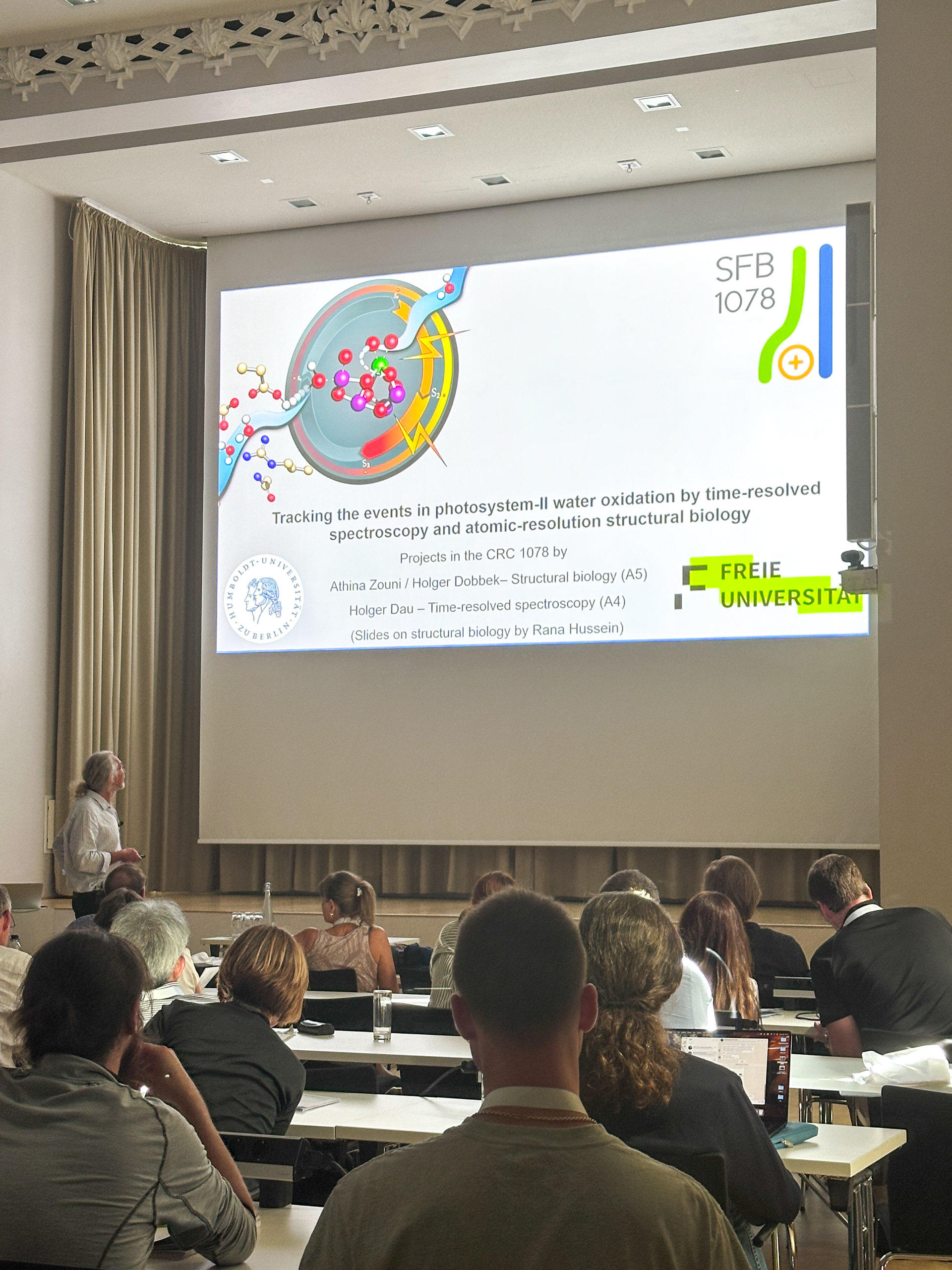
The research center "Protonation Dynamics in Protein Function" produced over 400 publications in leading scientific journals, including Science and Nature.
New spectroscopic and structure-resolving experimental method
Building on expertise in time-resolved vibrational spectroscopy, researchers employed cutting-edge X-ray free-electron lasers (XFELs) to capture structural changes in complex proteins like photosystem II and phytochromes at near-atomic resolution.
For retinal proteins, structural changes were mapped across timescales from femtoseconds to milliseconds, resulting in several high-profile publications in Science and Nature.
From Laboratory to Application
The CRC also studied photoreceptor proteins such as channelrhodopsin and phytochrome, which are now used in biological imaging and optogenetics.
CRC 1078: A Launchpad for Academic Careers
The Collaborative Research Center was successful in promoting young scientists in biophysics and its theoretical disciplines. Its integrated graduate school supported nearly 50 doctoral candidates, producing 32 Ph.D. graduates by 2024. Several researchers advanced to project leadership and developed independent research fields.
Nine scientists were appointed to professorships at European universities, including: Inez Weidinger (TU Dresden, 2016), Athina Zouni (HU Berlin, 2016), Franz Bartl (HU Berlin, 2017), Petra Imhof (FAU Erlangen-Nürnberg, 2020), Ana-Nicoleta Bondar (Univ. Bukarest und Jülich, 2021), Han Sun (TU Berlin, 2023), Stephan Block (FU Berlin, 2024), Igor Schapiro (TU Dortmund, 2024) und Rana Hussein (Universität Frankfurt, 2025).
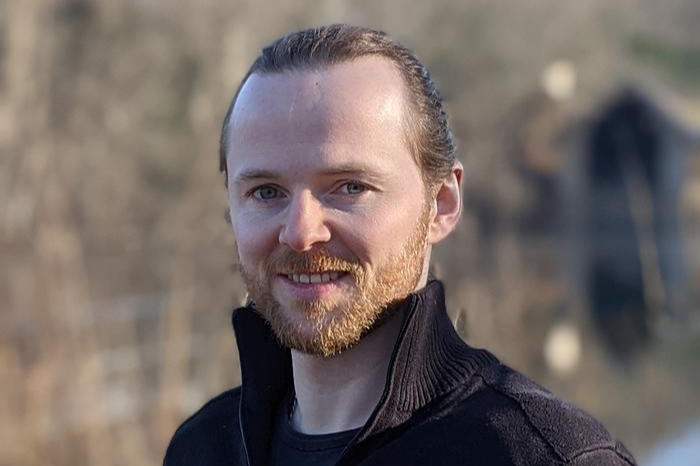
Dr. Jacek Kozuch, group leader, reflected: “CRC 1078 provided me with the unique opportunity to grow as an independent scientist and establish a new research direction on viral proteins, which will remain a focus for my group.”
A Successful Conclusion
The CRC's final symposium took place from September 1–3, 2024, at the Harnack House of the Max Planck Society in Berlin. It opened with a keynote titled Tracing a Proton at Three-Time Domains by Menachem Gutman and Esther Nachliel from Tel Aviv University.
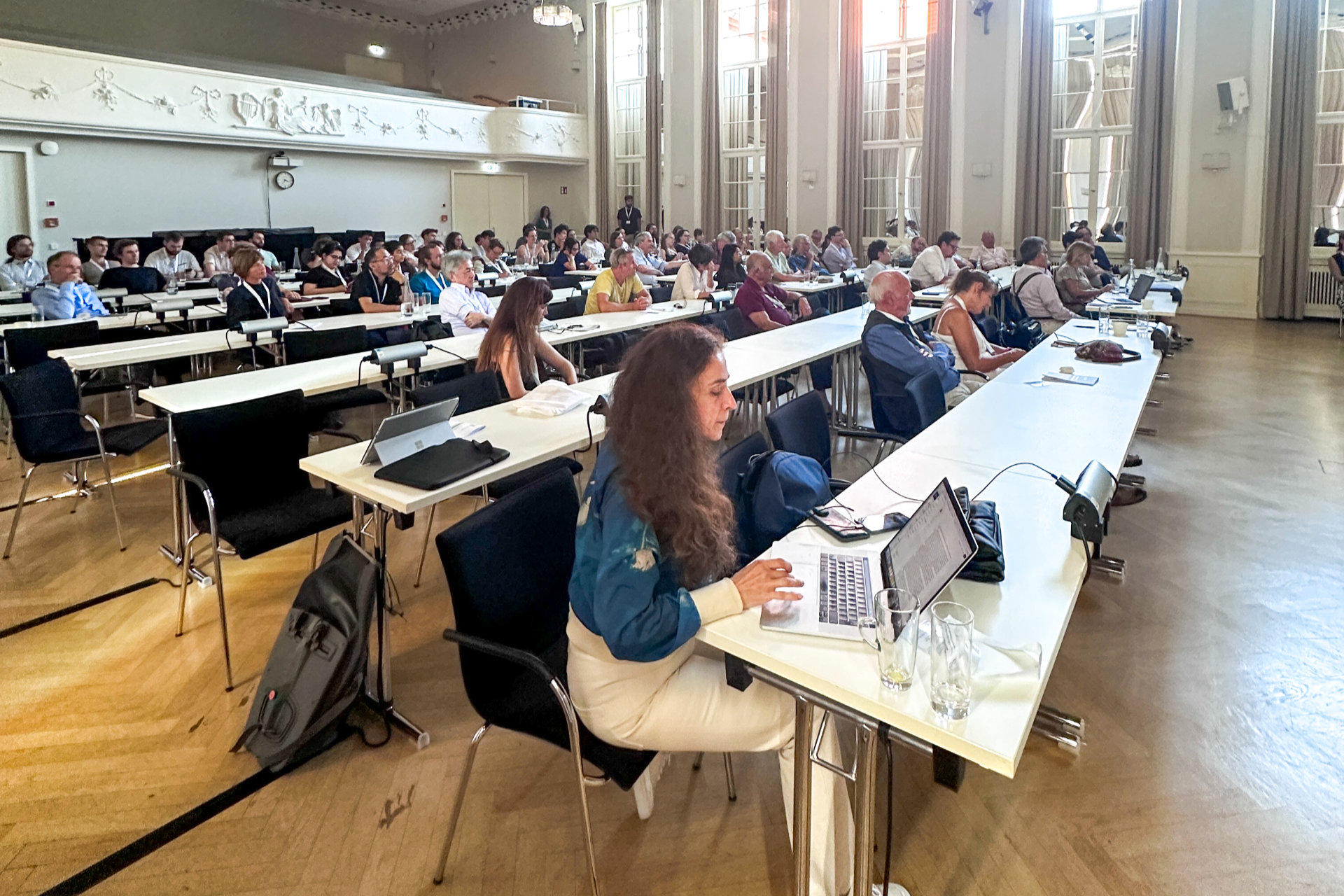
Around 100 scientists, including 11 renowned researchers from Germany and abroad, celebrated 12 years of achievements, discussed future applications, and envisioned new projects. The international participation highlighted the CRC’s significant impact and robust scientific network.
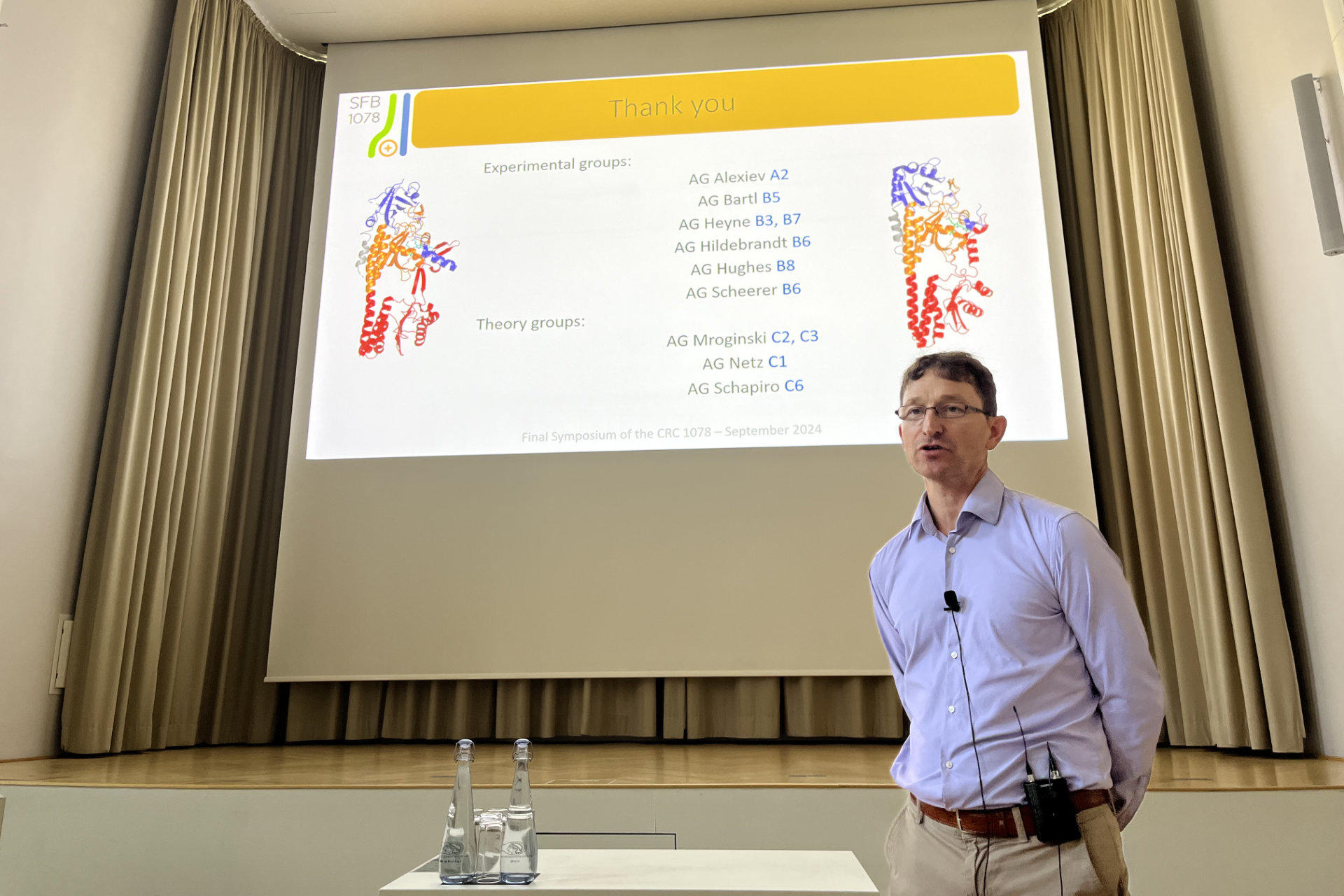
The many years of intensive cooperation between the various disciplines and scientific institutions have shown on the one hand how important the exchange between theory and practice is for scientific progress, and on the other hand how strong the scientific network in biophysics is.
Thanks to all participants for their dedication to this successful collaborative effort. We look forward to seeing these discoveries shape future research endeavors.
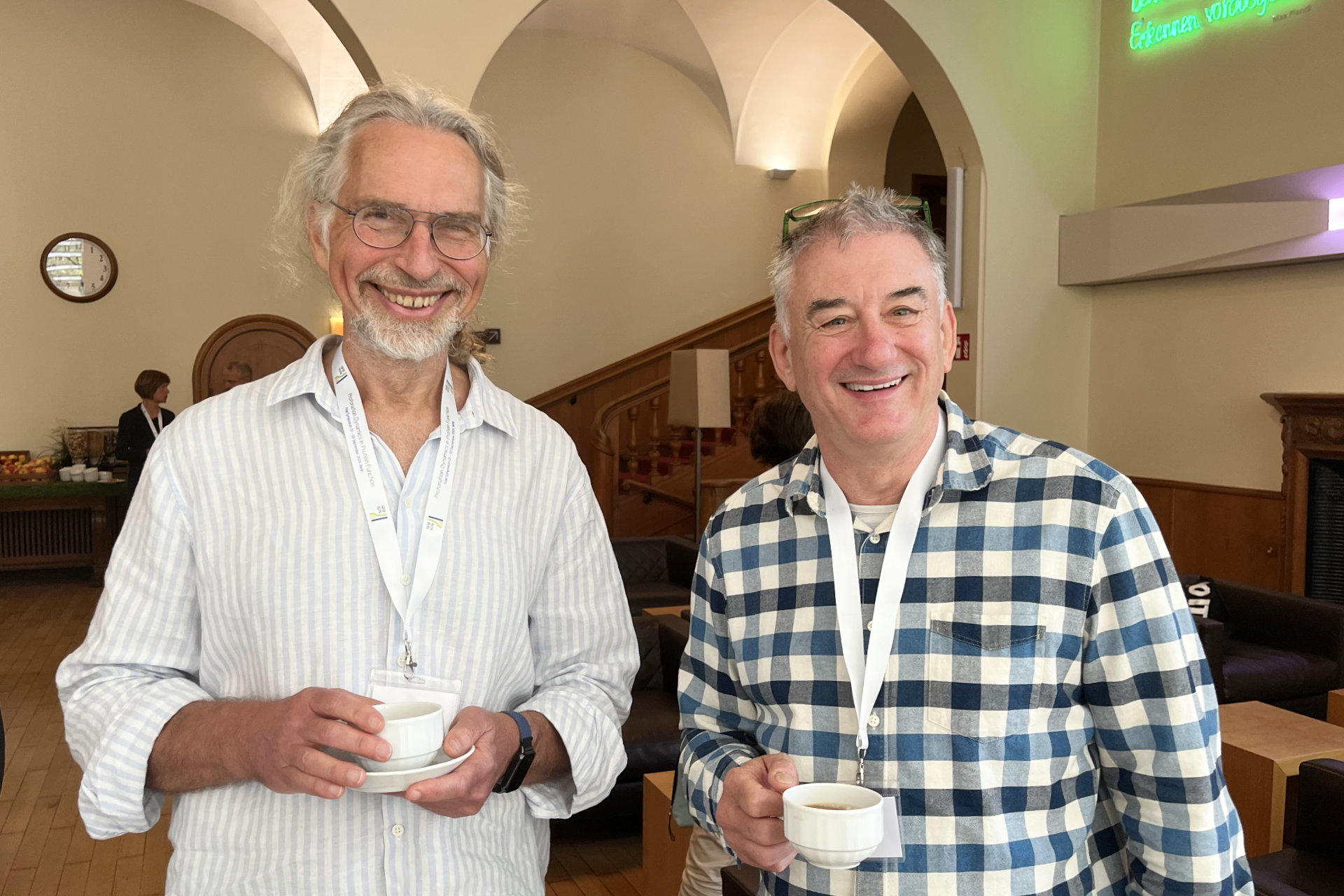
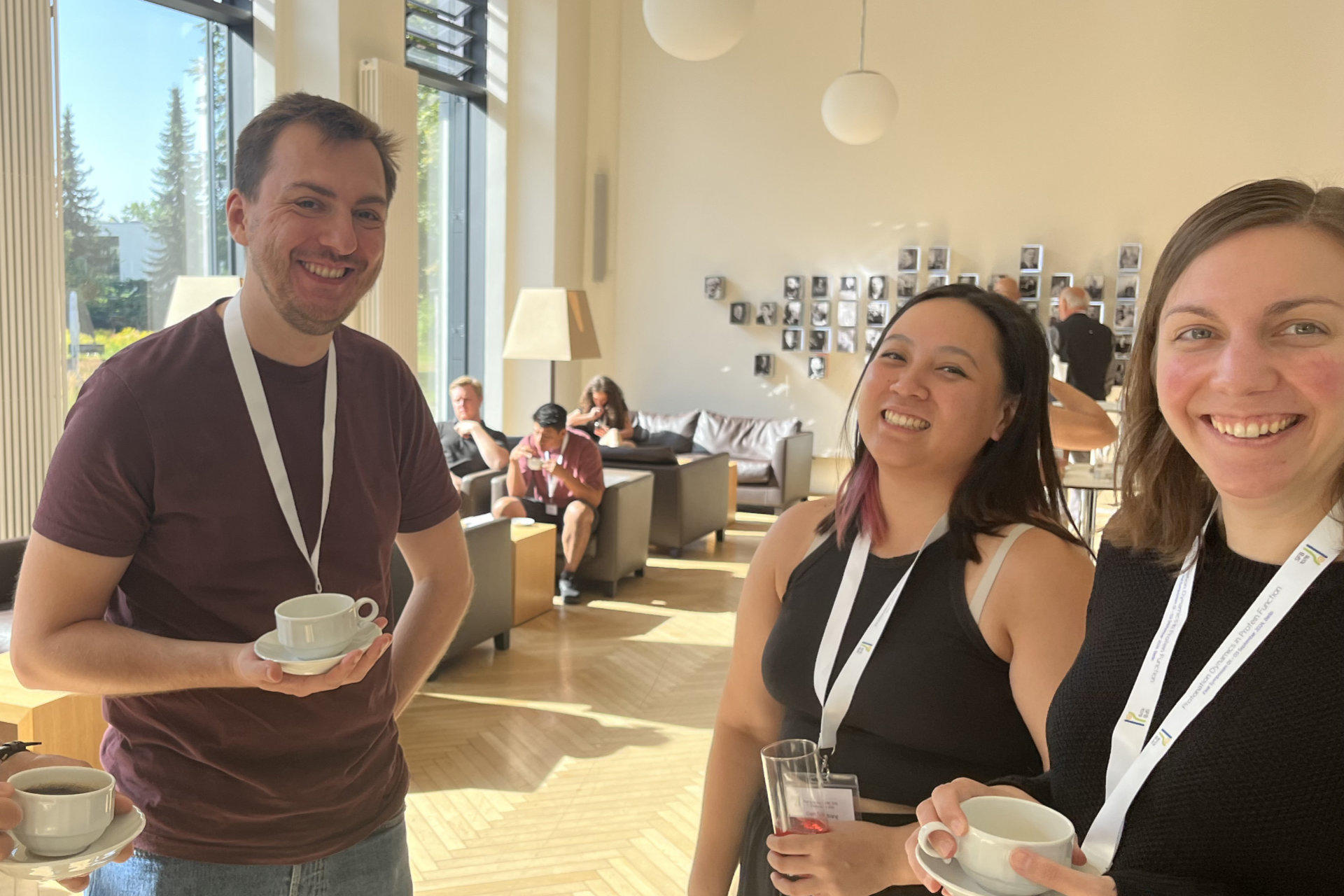
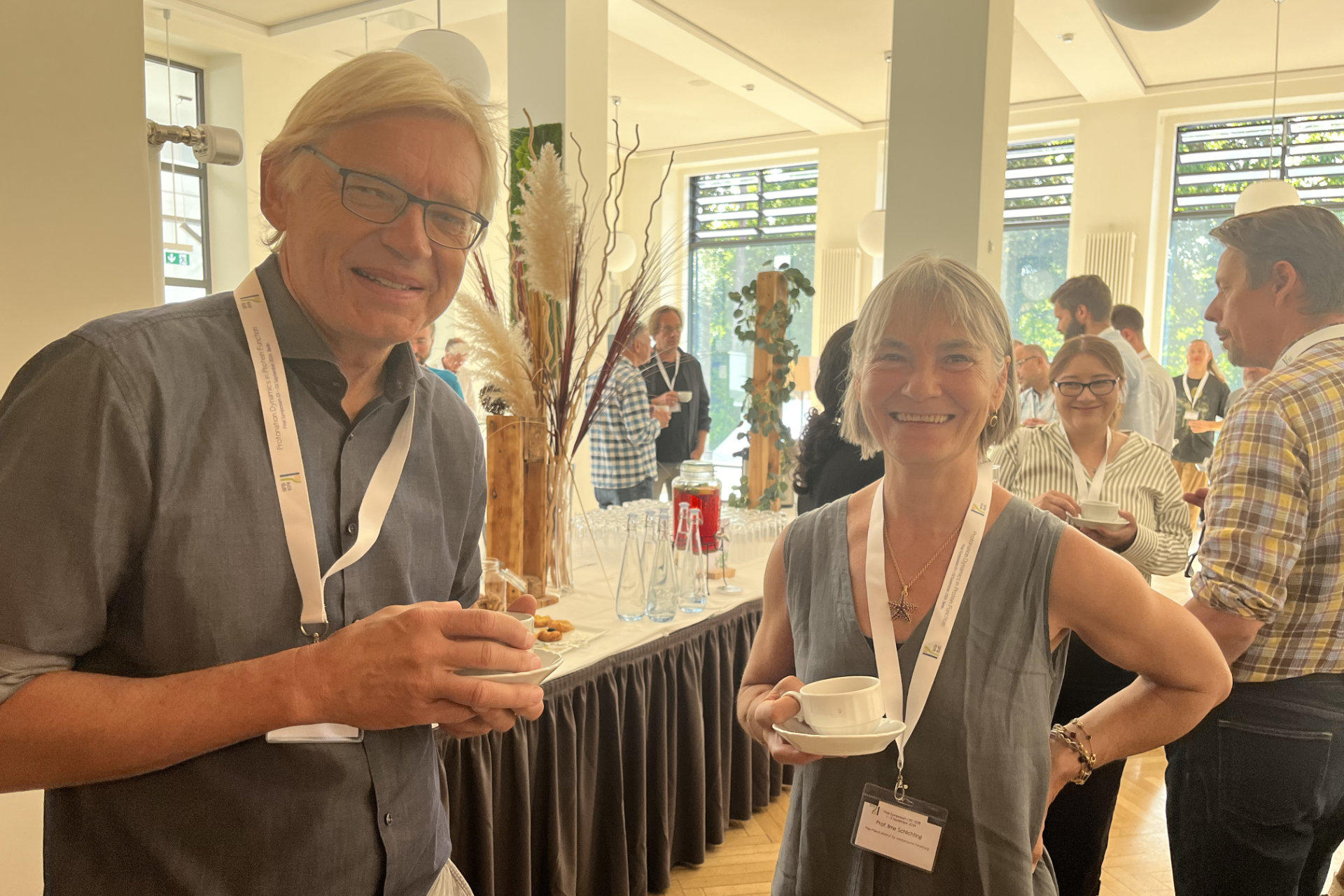
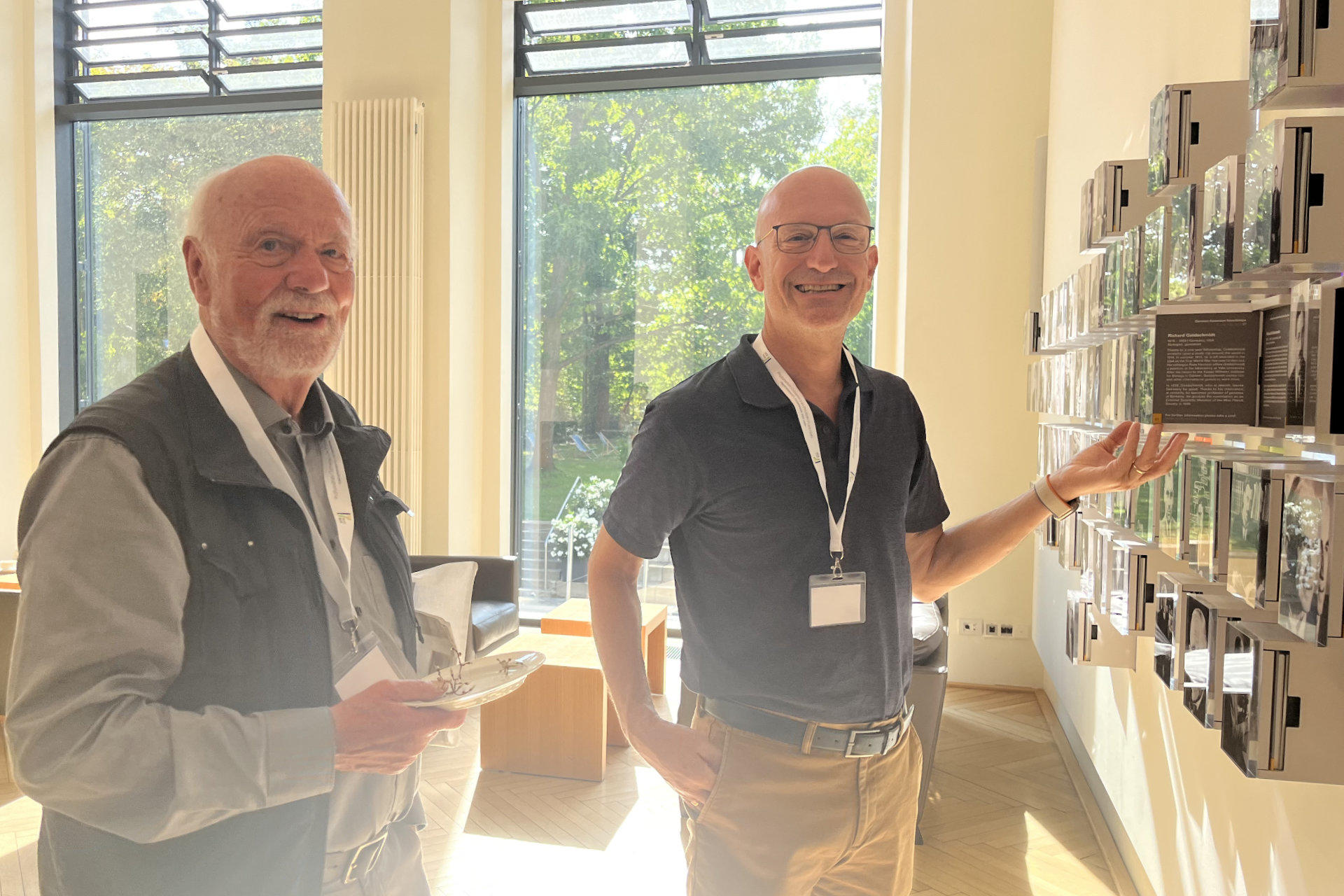
Keywords
- Biophysics
- collaboration
- collaborative research center
- CRC 1078
- German Research Foundation
- membrane proteins
- Protein Function
- Proton
- Protonation Dynamics
- science
